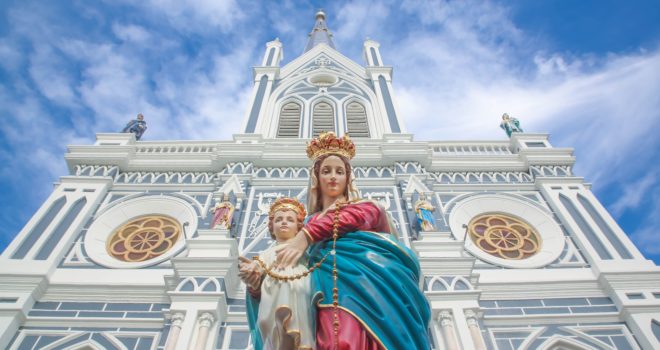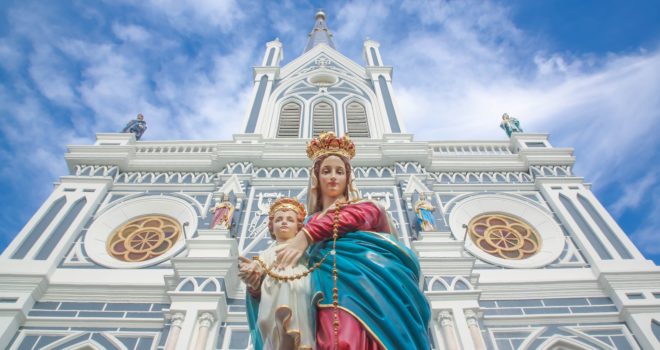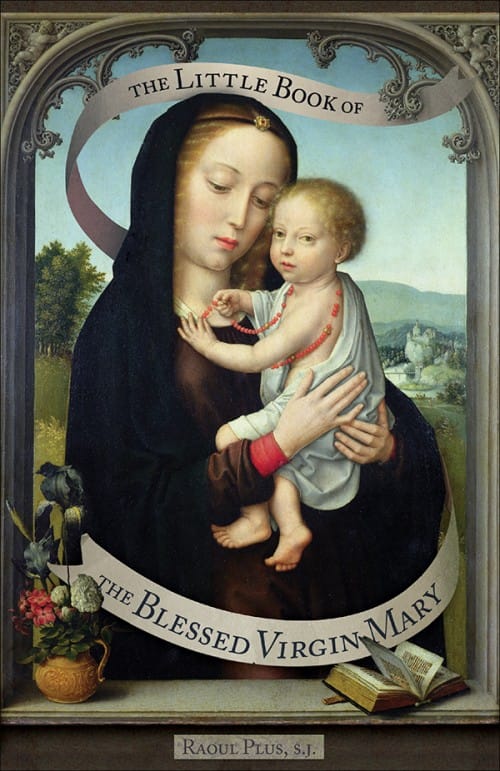An English author tells the story of a mother who tried the incredible in order to save the remains of her child: “The boy had been hung for robbery and buried outside the Christian cemetery. The mother went to look for his remains. Upon being rebuked for her action, she exclaimed, ‘The flesh of my flesh had disappeared, but the bones of my bones remained. I stole them from the custody of the authorities. Tell me, do you call that a theft? My little boy, the bones of him whom I nursed, the bones of him whom I saw smile and cry. They belong to the authorities? No, they are mine, not theirs! They have lived in my womb!’ Then she told that, as her son was being led to execution, he cried out, ‘Mother! Mother!’ This cry had been ringing in her ears constantly since his execution. Now that she had buried her son in consecrated ground, she had more confidence in the goodness of God. She had suffered so long, but the Lord knew all about it.”
This Polish legend, too, is very significant: “A young boy called several doctors for his mother, who had lapsed into a coma. One doctor prescribed a particular treatment, but the other doctors said it would be better to let her die than to subject her to such a treatment. A second doctor suggested another remedy to which the others made the same objection. Then the son, in utter distress, screamed, ‘Mother!’ At her son’s voice, the mother awoke and was cured.”
These are striking examples of the power of a son over his mother, and the untiring labor of a mother for her son — a labor that nothing can daunt or diminish, not even the blackest ingratitude of the most ungrateful children.
If the heart of any mother is an abyss of indulgence and goodness, what must the heart of Mary be?
Mary’s influence is sovereign in the realm of mercy. God owes it to Himself to be just as well as merciful, but Mary is not obliged to temper her mercy with justice. When a soul is in distress, Mary intervenes. We need not be endowed with special merits to obtain her intercession; the more destitute we are, the more indulgent she is; the less we deserve her help, the more merciful she proves herself.Mary is frequently pictured with her head inclined toward the earth, and her hands filled with graces. At Valencia in Spain, the people venerate a statue of the Blessed Virgin under the title of Notre Dame de los Desemparados. They call their Madonna the gobba, or the hunchbacked, because the Virgin is so accustomed to stoop to us mortals.
Upon the door of the lower Sainte Chapelle at Paris, there is also a statue of the Virgin inclining her head toward earth. A pious tradition relates that a little girl wanted to place a wreath of flowers on the head of the Blessed Virgin. Mary bent her head to receive the crown and remained fixed in this attitude, which, no doubt, she liked.
In its own way, another little legend tells how granite can serve the mercy of Mary! A sculptor, working on the scaffolding of a cathedral, suddenly leaned too far back, lost his balance, and fell; happily, a statue of the Blessed Virgin, with arms extended, caught the falling man.
It is a popular belief that Mary can refuse nothing. The poet Charles Péguy walked to Chartres to obtain from the ancient Madonna there the cure of his son, and the favor was granted. He might have imitated the good woman of the Golden Legend who prayed Mary to free her son, a prisoner. The boy did not come back at once, but the good woman did not give up. She took the little Bambino from the arms of Mary: “My son has been taken away from me, and you have not brought him back! I am taking your Son, and I shall keep Him as a hostage.” The story goes on to say that, naturally, the Madonna went at once to get the prisoner and to bring him back to his mother.
What an enormous anthology of all the cures and temporal graces obtained through Mary could be compiled! At the Parisian sanctuary of Our Lady of Victory, a confraternity was established in 1837, and in 1886, there were already fourteen thousand ex-votos of marble. Is not Lourdes a peerless proof of the power of Mary? Although it is impossible to mention even a few of these stories of Mary’s power, we shall not omit this little story related by the Count de Champfeu, a captain of the frigate, who got it from the Admiral Dorlodot des Essarts, then a young ensign of a ship in the naval division of the Pacific and a witness of the episode.
It happened when sailboats were in the last stages of their use. A rigger in the crew of one of these sailboats fell from the topmast into the water. The rest of the crew, who were on their way to their hammocks at the time, rushed to his rescue. Although they had on deck only two life buoys, having lost the others near Cape Horn, they threw both of them into the sea. By clinging to one of them, the man was saved. That was fine, but where was the second life buoy? They looked for it all night. Finally, at dawn, they spotted the life buoy bobbing along on the water, and, to their consternation, midshipman Jacques de Langelle, completely exhausted but still clinging to it miraculously. After resting awhile, he solved the mystery. At the cry, “A man in the sea,” he had jumped from the chain-wale of the mizzen to rescue him. The crew was too much interested in their efforts to save the rigger to notice him. Langelle thought that, after the rescue of the sailor, the whaleboat would be directed in search of the other life buoy. Imagine his dismay when he saw the frigate set up sail, pull in the gangplank, and turn in an opposite direction. He screamed wildly, but distances are great at sea; darkness fell rapidly, as it does in the cold countries where there is no evening.
Langelle thought himself alone and lost forever. His despair increased when he realized that his absence would not be noticed, since there was to be no evening service. The crew would think he was sleeping in his hammock on the deck. He grew sick with fear and, in his fatigue, was tempted to let himself go. This deep, clear water attracted him; the stars seemed to dance on its surface. One of his hands had already relaxed its feeble hold when Langelle thought of his mother. He raised his eyes to the stars, whose gentle light comforted him and prayed to his heavenly Mother, his Mother among the stars, Stella Manis. Strengthened by faith and confidence in the Blessed Virgin, he managed to struggle in the chill water until morning. When the stars dimmed their light, the frigate was beside him. The morning star, Stella Matutina, had saved her faithful servant.
✠
Image: Shutterstock/Immaculate
Editor’s note: The above excerpt is taken from Little Book of the Blessed Virgin Mary, available from Sophia Institute Press.














